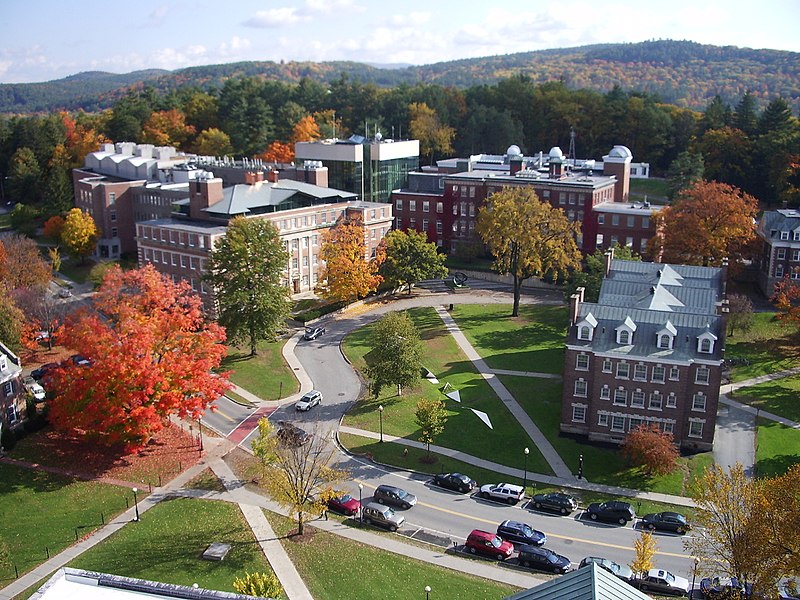
On September 15, Dartmouth College men’s basketball athletes filed a petition to unionize with the National Labor Relations Board. Filed by the Service Employees International Union, the petition marks the first time a group of college athletes has attempted to unionize since Northwestern University football players filed a petition in 2014. According to a statement by the SEIU, all 15 athletes on the Dartmouth men’s basketball roster signed union representation forms with their local SEIU chapter. What’s next in the Dartmouth men’s basketball unionization case?
There may be unanimous interest amongst Dartmouth men’s basketball players to unionize, but that doesn’t mean the path to representation is clear. Challenge may come from the Dartmouth board of regents–their alleged employer–who could argue the college athletes aren’t employees. Under the National Labor Relations Act, only employees of private employers can unionize. Thus, if this likely argument by the board of regents is successful, the unionization bid will fail.
A number of legal tests exist to determine if a worker is an employee. Following precedent set in the Northwestern football athlete unionization case, the NLRB will likely apply the right to control test. That test considers the level of control an employer has over how a worker completes their job. A variety of factors is considered under the test, including the level of skill to complete the job, the level of supervision the employer provides, and how the worker is paid, amongst others. The greater the employer’s control is over the worker, the more likely it is that the worker is an employee who can unionize.
Region 31 of the NLRB applied the test in the Northwestern unionization case to determine that Northwestern football athletes on scholarship are employees under the National Labor Relations Act. In reaching this decision, focus was given to the breadth of control coaches exercised over the athletes’ schedules. The NLRB examined the scope of time Northwestern football players engaged in football-related activities and the range of their education requirements. Further, the NLRB considered the body of NCAA rules that the football players were subjected to following.
Notably, in the Northwestern petition, the NLRB gave special attention to the compensation the football athletes received through athletic scholarships. The regional office found that “the scholarships the players receive is compensation for the athletic services they perform.” It went on to note, “while it is true that the players do not receive a paycheck in the traditional sense, they nevertheless receive a substantial economic benefit for playing football.” Further, it found that the statement of financial assistance the players signed to receive their athletic scholarships amounted to an employment contract.
The above line of reasoning presents a hurdle to the Dartmouth men’s basketball athletes’ unionization petition. Notably, Ivy League college athletes do not receive athletic scholarships for their participation in Division I NCAA athletics. With Region 31 of the NLRB pointing to athletic scholarships and athletes signing the statement of financial assistance to determine employee status, how Region 1 of the NLRB will address the lack of the same for Dartmouth men’s basketball athletes is to be seen.
Up next in the case is a hearing before Region 1 of the NLRB on October 3. There, Dartmouth could object to the union election. If it does, it will likely be on the ground that the men’s basketball athletes are not employees. Like Northwestern University, Dartmouth could also argue that the men’s basketball team is arbitrary and not appropriate for bargaining. Here, the university would assert that it would be inappropriate for it to collectively bargain with just one team at the university. Notably, it was under this line of reasoning that the head NLRB ultimately struck down the Northwestern University football players’ unionization attempt.
The outcome of the Dartmouth men’s basketball athletes’ unionization petition could impact college athletes’ efforts to be recognized as employees and secure greater compensation from universities. The NLRB determining that the Dartmouth non-athletic scholarship athletes are employees would open up the possibility of all Division I college athletes in revenue producing sports being deemed employees. Notably, in 2021 current NLRB general counsel, Jennifer Abruzzo, issued a memorandum indicating that Division I football players and “similarly situated players” at other institutions are employees who can unionize. Who is included in “similarly situated players” is unclear, but the reach of the guidance from Abruzzo’s memorandum will likely be tested in the Dartmouth men’s basketball athletes’ unionization bid.
Questions remain over what the outcome will be in the Dartmouth men’s basketball athletes’ unionization petition. One thing is certain, though: it will take time for answers to emerge. The process will likely unfold over at least one year. The Northwestern case took roughly 18-months from the time that the initial unionization petition was filed to the head NLRB’s decision to deny jurisdiction in the case. You can follow the proceedings in the Dartmouth case here.
Get the free weekly newsletter so you can win the game.
